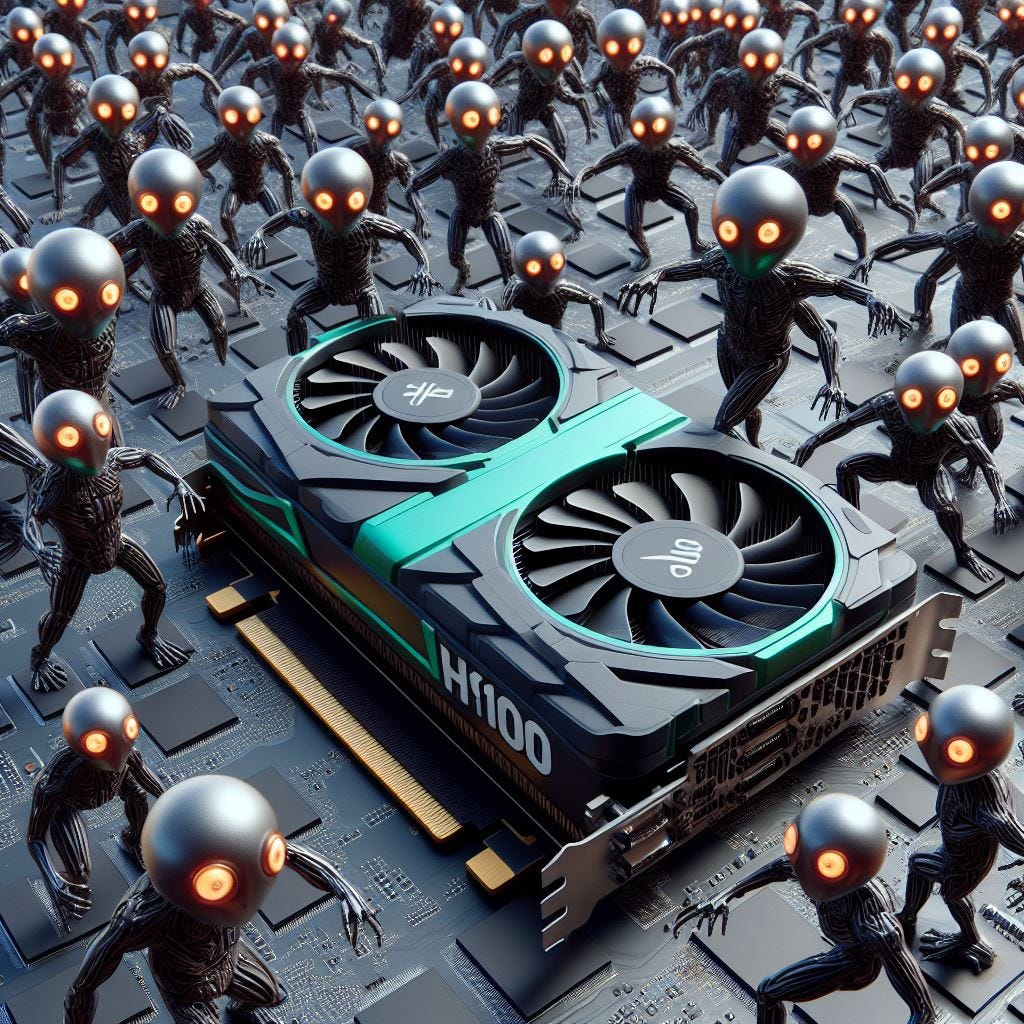The Competition is Coming for Nvidia
After a long, largely unimpeded run, NVIDIA’s challenge has finally arrived.
It’s about to get hot in NVIDIA’s kitchen. All year, competitors watched as the chipmaker added hundreds of billions in market cap and became AI operators’ go-to technology. They saw startups scrambling to rent time on its H100 chips, VCs buying thousands of them, and NVIDIA CEO Jensen Huang go from relative unknown to tech icon in a blink. Here comes their response.
After ceding much of the early generative AI boom to NVIDIA, these competitors are releasing — and proving the value of — chips that can run large language models in a similar fashion. Tech giants like Alphabet, Amazon, and Microsoft are designing their own AI chips and training models on them. Rival chipmakers like AMD and Intel are producing AI-optimized chips themselves. And amid a supply crunch, startups are willing to try alternatives. Now, after a recent spate of releases, NVIDIA’s easy times are ending.
“It's the law of competition,” David Trainer, CEO of research firm New Constructs, told me. “People are going after this space because there's an enormous amount of money to be made in it.”
First among NVIDIA’s challengers are fellow trillion-dollar companies Amazon, Google, and Microsoft. It went largely unnoticed last week, but Google’s announcement of its Gemini AI model left NVIDIA out entirely. Google trained Gemini on its own chips, called Tensor Processor Units, or TPUs, not NVIDIA’s H100s, leaving industry insiders buzzing.


